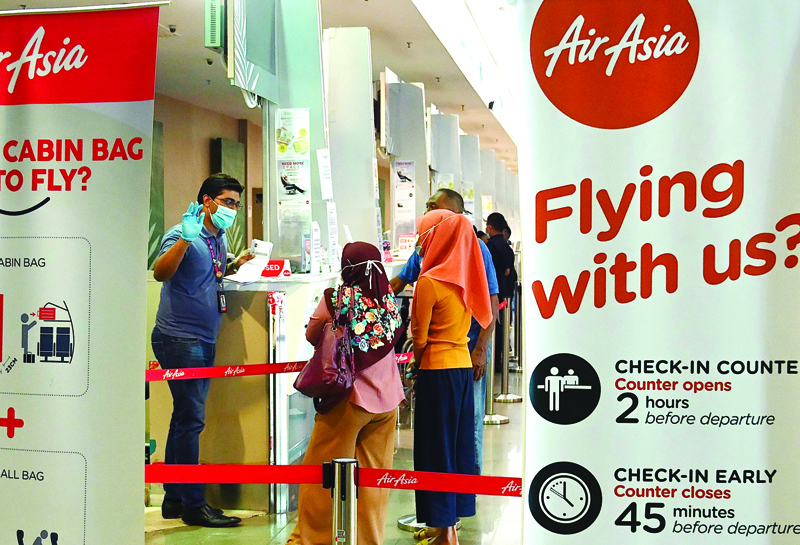
KUALA LUMPUR: Malaysian authorities are rounding up undocumented migrants as part of efforts to contain the spread of coronavirus, officials said, after hundreds of migrants and refugees were detained in the capital Kuala Lumpur. Authorities said 586 undocumented migrants were arrested during a Friday raid in a downtown area where many foreigners live, a move the United Nations said could push vulnerable groups into hiding and prevent them from seeking treatment.
Those detained included young children and ethnic Rohingya refugees from Myanmar, rights groups had said. Police said the operation was aimed at preventing undocumented migrants from travelling to other areas amid movement curbs imposed to contain the spread of the virus outbreak, state news agency Bernama reported. The United Nations urged Malaysia to avoid detaining migrants and release all children and their caregivers, warning that overcrowded detention centers carried a high risk of increasing the virus' spread.
"The fear of arrest and detention may push these vulnerable population groups further into hiding and prevent them from seeking treatment, with negative consequences for their own health and creating further risks to the spreading of COVID-19 to others," the United Nations said in a statement. The arrests followed public anger in recent days over the presence of migrant foreigners, particularly Rohingya refugees, with some in Malaysia accusing them of spreading the coronavirus and being a burden on state resources.
Malaysia has around 2 million registered foreign workers but authorities estimate many more are living in the Southeast Asian country without proper documents. Malaysia does not formally recognize refugees, regarding them as illegal migrants. Security minister Ismail Sabri Yaakob refuted criticism of the arrests, saying that all of those detained had been screened and found to have tested negative for COVID-19. They would be sent to immigration detention centres to await further action, he told reporters on Saturday.
"Even though the migrants were living under lockdown, their presence here is still illegal," Ismail Sabri said. "There is no issue of cruelty towards these migrants as they have been well taken care of… but action must still be taken against them under the law." The neighborhood where the raid had taken place was close to an area with three buildings that had been placed under strict lockdowns last month after a surge in coronavirus cases there.
Around 9,000 people live in the buildings, most of whom are foreign nationals, and 235 of them have tested positive for COVID-19, the government has said. Malaysia has reported a total of 6,176 coronavirus cases and 103 deaths. Its prime minister has also announced a partial easing of six-week long curbs that have caused a damaging economic slowdown, with most businesses expected to reopen from Monday.
Ease virus curbs
Malaysia will allow most businesses to re-open from next week, the prime minister said, easing a lockdown to fight the spread of the coronavirus as the country's outbreak slows. The Southeast Asian nation in mid-March ordered the closure of all but essential businesses as well as schools and asked people to stay home, as cases surged.
But the number of new infections has slowed markedly in recent weeks, with fewer than 100 reported most days. In total, the country has recorded about 6,000 cases and 100 deaths so far. Prime Minister Muhyiddin Yassin said that from Monday "almost all economic sectors and business activities will be allowed to operate subject to conditions". These include ensuring that employees can properly practice social distancing, he said in a televised address.
He said that during the lockdown, the country had lost about 63 billion ringgit ($14 billion) as economic activity ground to a standstill. But schools will stay shut as well as businesses that could involve people being in close proximity - and thus increase the risk of infection - such as cinemas. Mosques in the Muslim-majority country will also stay closed and people will not be allowed to travel back to their hometowns for the Eid holiday, which falls at the end of May after the holy month of Ramadan.- Agencies

